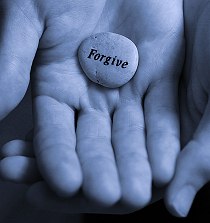Pain, disappointment, hurt, embarrassment, and shame are emotions that are associated with all relationships; whether they are romantic or non-romantic. The most important emotion is anger. Anger, however, is a secondary emotion. No one feels angry first. Anger is a reaction to an event. For example, if your boss calls you “inadequate” aloud during a staff meeting you might feel embarrassed. Then, after your colleagues react to the statement you become angry. What if I told you it was important to forgive your boss? I can hear the mumbles now. Let me explain.
Forgiveness is important for personal growth
Refusing to forgive someone can deter you from your personal goals. When you are angry with someone, that anger can consume your thoughts. Let’s continue to use the example of the boss. After the boss calls you inadequate, it may cause a negative reaction for you towards your job. You may neglect your work tasks deliberately due to your emotional state. The reason that you remain angry is due to your initial reaction. It is the embarrassment that the comments caused that still remain. As long as this goes unresolved, then the anger will remain. Your boss has total control over your emotions without having to do anything. Suppressing your emotions will only cause these emotions to be expressed in a negative way. This may cause you to direct your anger at people that were not involved in the situation.
Creating a forgiveness list helps identify those you need to forgive
The purpose of a forgiveness list is to identify all the people that you need to forgive. Rank the list from most important to least important. This could be updated as more names are identified. Next to each name write the reason you need to forgive the person. Each person you do not forgive holds a specific part of you. Until you learn to forgive the person, that part of you will continue to be lost. This is a process, and not something that will be done overnight. There will be times where you progress, and other times in which you go astray. Do not give up on the process. Forgiveness is the key to your own happiness. The boss that disrespected you should be on this list. Identify the reason that you need to forgive him. The reason might be so you can be more productive at work. Discovering the reason will give you the key to forgiving the person.
Forgiving frees you from the past
The past can block your present if you allow, blinding your sight from the wonderful opportunities in your future. Forgiveness helps to close the chapters of your past. Why relive past events, when new adventures are waiting to be written? All the hurt that you feel about the past must be released. If the situation is severe, seeking professional counseling is suggested.
In any regard, you must allow the process of forgiving to happen. This is how you will free yourself from the past. If your boss treated you negatively, it does not mean your next boss will. Forgiving will allow you to reflect on each relationship independently instead of from past references. Life is difficult enough without carrying unresolved baggage.
Forgiving prepares you for more meaningful relationships
Being freed from the past, you are now ready for progress, to move on. This may be the begging of a new relationship or the repair of an old one. Now that you understand the feelings you have towards your boss, the situation could possibly be reconciled. If the situation cannot be reconciled, then at least you will be able to express your emotions in a more controlled manner. Whatever the outcome, you must forgive for your own benefit. Forgiveness is not for the person you feel disrespected you, but it is all about you. You forgive so that you can be a better person. When you seek new relationships, you will enter them without the baggage and the hurt from your past. Everyone has emotional wounds. Forgiveness is the bandage for those wounds. You may always be able to see the scar, but the wound can heal. There is power in forgiving. Get your power back.
About the Author:
Terrence Johnson is a licensed professional counselor who currently works at Jackson State University as a therapist. He is a graduate of Mississippi State University where he obtained a bachelor’s degree in psychology and a master’s degree in counselor education. He has worked with adolescent offenders, children with mental health disorders, middle, high school, and college-aged students. He specializes in the areas of career and mental health counseling.
